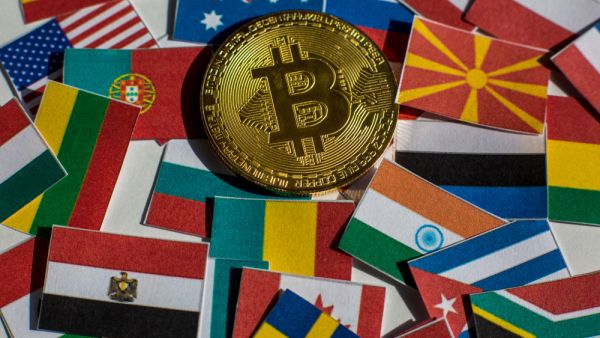As El Salvador made history in a bold move back in September 2021 by becoming the first-ever country to make bitcoin a legal currency, the third one to buy bitcoin as a nation, and the first-ever country to airdrop bitcoin to citizens, at least 3 other countries are already going through the paperwork required to follow suit.

Some of these countries are neighbors to the Latin country which has the intention to build a "Bitcoin City" that would rely on bitcoin-backed bonds with zero taxes. Even though this nationwide auspicious adoption received warm welcome by the crypto community world wide, it was far from being problem-free as the gov' of the smallest country in Central America grappled with some issues as international bodies like The World Bank and The International Monetary Fund (IMF) and Bank of England (BoE) opposed bitcoin adoption and voiced out their worries of recognizing the truly digital currency.
What has been called by international organizations as “The #Bitcoin Experiment”, is nothing more than the world watching how mass adoption changes a country’s economy.
— Nayib Bukele ?? (@nayibbukele) December 23, 2021
If it’s for the good, it’s game over for FIAT.
El Salvador is the spark that ignites the real revolution.
In November 2021, The Library of Congress (LOC) conducted periodic reviews of countries' stances on Bitcoin and cryptocurrencies, the study identified 103 countries that are currently developing regulations regarding cryptocurrencies and their use in AML/CFT and some are looking into embracing the first truly digital currency.
Here are 3 countries that could follow El Salvador's lead and take a bitcoin-friendly stance:
-
Paraguay
Latin America continues to lead the crypto adoption as Paraguay is eyeing accepting bitcoin as a legal tender. Back in July 2021, Paraguay started to develop its very own cryptocurrency strategy in which BTC can become an official currency that is taxed and regulated. Also, the country’s low and stable energy prices made it a very tempting option to bitcoin mining. Currently, the Paraguayan parliament is still discussing the bill which also aims to put the country’s energy surplus into a good use to mine BTC.
....and now the Chamber of Deputies @DiputadosPy @carlitosrejala will next year debate this project, where we hope the proposal will be thoroughly analyzed with the public and private sector, improving it if necessary, for its effective approval.
— FernandoSilvaFacetti (@FSilvaFacetti) December 17, 2021
-
Ukraine
Ukraine has legally recognized and regulated bitcoin and other cryptocurrencies! Taking inspiration from El Salvador, the Ukrainian government has passed a law that aims to legally recognize, regulate and restrict crypto which will now be seen as non-monetary assets in the country for the first time ever.
However, unlike El Salvador, Ukraine didn't mention any direct plans to adopt bitcoin but will allow the people to own and trade cryptocurrencies that are recognized by the country. This also means that crypto firms will be welcomed to launch digital asset markets in Ukraine and enables banks to “open accounts for crypto companies,” the Cointelegraph reported.
According to Chainalysis, Ukraine was among the top ten countries which earned the most on Bitcoin trading in 2020 so if you connect the dots, it would make perfect sense if the Ukrainian gov’t legalize BTC soon.
-
Malta
Malta has always had an open-door policy towards bitcoin and other cryptocurrencies as it became the first and only country to introduce an organized framework for cryptocurrency use back in 2018. Since then, the Mediterranean archipelago has become the international crypto hub and vanguard that embraced crypto firms and exchanges.
Many suspects that Malta will be the next country to make bitcoin a legal currency.









